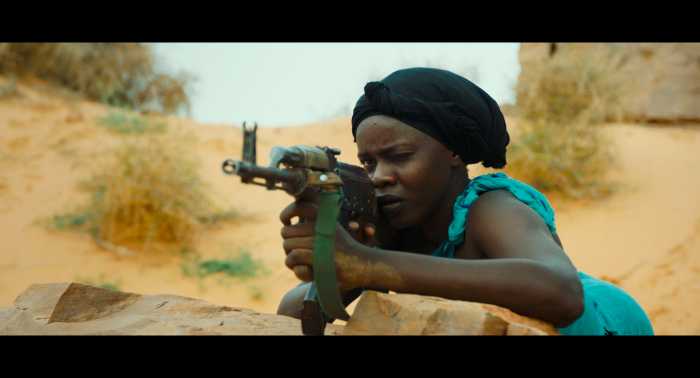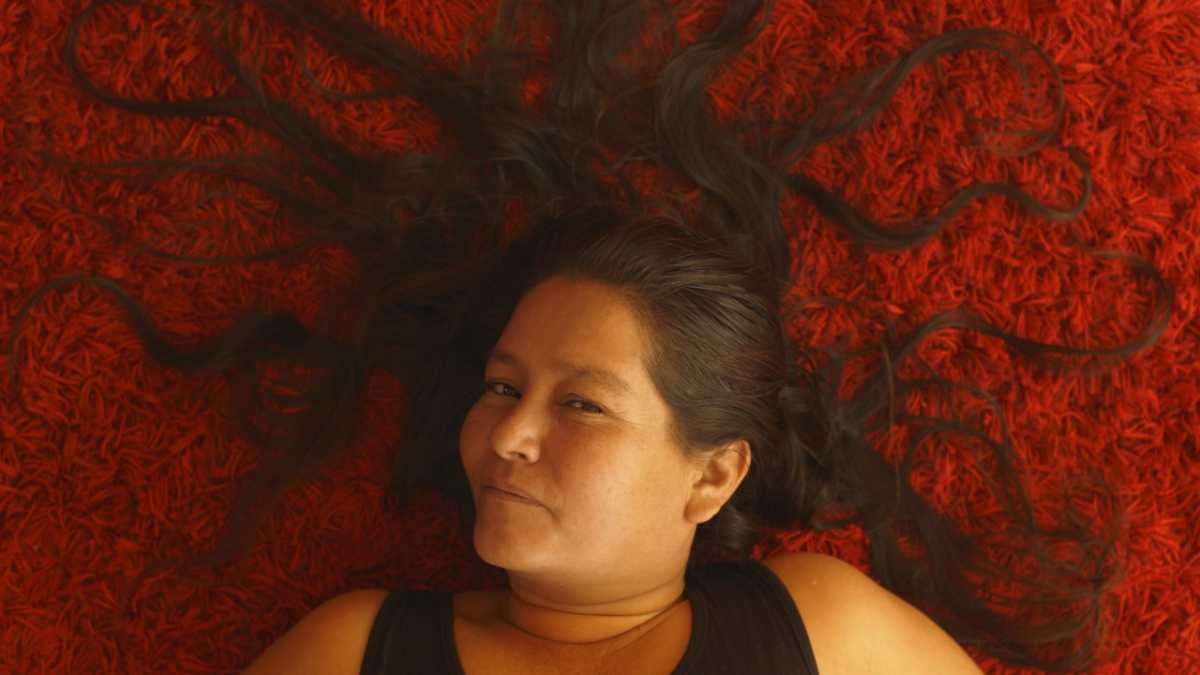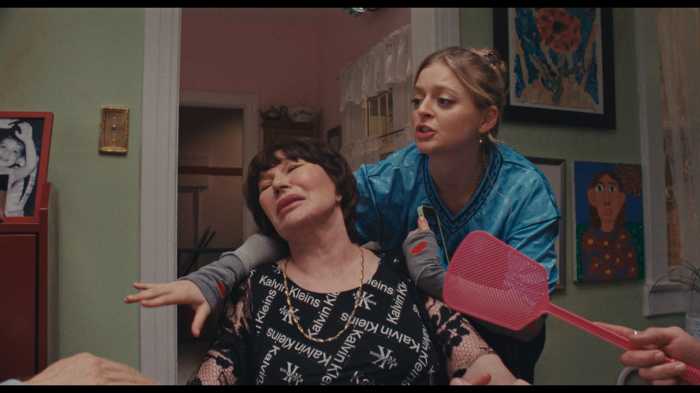As American media bends the knee to the far right, documentaries have turned into a vital alternative to corporate news. A vast expanse of nonfiction filmmaking, the DOC NYC festival offers a huge survey of 2025’s documentary production, with 14 different sections (including the programmer’s picks for the 10 best non-fiction films of this year).
Although it tends to eschew experimental and hybrid work, it avoids wallowing in made-for-streaming true crime slop, and its profiles of artists tend to be rather niche. (This year, they encompass ‘60s rock band the Fugs, a Palestinian comedy troupe, Syrian clarinetist Kinan Azmeh, and painter/photographer Marilyn Minter.) Its vast expanse includes films by LGBTQ directors and about queer and trans people’s lives. Four are reviewed below; others include Ryan White’s “Come See In the Good Light” (which will soon premiere on Apple TV), Joao Vieira Torres’ “Aurora,” Dena Fisher and Amy Scott’s “Saving Etting Street,” and Kahane Corn Cooperman’s “Creede U.S.A.”and Ivan Vescovo’s “3,000KM By Bike.”
Maraluisa Ernst’s “A Place of Absence” speaks from the director’s family history. With roots in Bolivia and Chile, the queer, non-binary director has lived in the US for the last 20 years. During Argentina’s years under dictatorship, her uncle suddenly disappeared one day. Although his arrest was never announced, her family knew that this was retaliation for his political views. In this film, Ernst reaches out from her personal perspective to other Latinx women whose children have disappeared. She rides with two of them on a caravan traveling from Central America to Mexico.
There’s a troubling paradox to “A Place of Absence.” Its personal passion is impossible to miss, but it relies on documentary clichés: extreme long shots taken from drones, very quiet but manipulative background music. Ernst seeks renewal in nature imagery, but the results, with rose petals slowly falling to the ground over a photo of her uncle, are often kitschy. “A Place of Absence” can be quite powerful, especially when Ernst and other women finally get answers about their relatives’ fates, but it’s sharpest when it’s most unadorned.
Isa Willinger’s “No Mercy” molds two major threads into one. The first is about the importance of Ukrainian director Kira Muratova. (The Criterion Channel is streaming a series of her films now.) The second takes off from a remark made by Muratova: “women make harsh, brutal films.” Inspired by this idea, Willinger interviews 13 woman directors (and the non-binary Joey Soloway.) Out of that group, Céline Sciamma, Monika Treut and Virginie Despentes are lesbian.

While the two threads don’t fully coalesce, there’s plenty of food for thought in discussions with these filmmakers. Willinger uses the concept of harshness to bind her documentary. At first, she views it as an expression of the brutal violence women so often experience, but she comes to see it as an emphasis on honesty. Along the way, she comes to propose a new canon, including relatively well-known figures like Sciamma and Alice Diop and more obscure ones like Margit Czenki, a German director who made her first film following a jail sentence, and Apollina Troaré. Hollywood is pushed aside, reduced to a few very brief clips.
When it comes to destructive behavior and attitudes from female directors, “No Mercy” gets hesitant. Catherine Breillat is given a great deal of space, but Willinger’s inclusion of the allegation that she staged a sexual assault on actor Caroline Ducey during a film shoot comes as a tacked-on afterthought. Nonetheless, Willinger’s enthusiasm for Muratova and this group of directors come through: one can feel how much they changed the way she views the world. “No Mercy” gives a voice to the importance of this continuing struggle.
Matylda Kawka’s “My Sunnyside” accomplishes the delicate act of filming a couple’s struggles without entirely defining them by it. Beginning at the wedding of Joe Schneier and Allie Barshaw, both of whom are trans, it heads back two years earlier towards a period when they were still in the midst of transition. During this time, he got top surgery and she underwent facial feminization surgery. Their lives are cushioned by Joe’s success as a CEO, but the long-term trauma of his childhood sexual abuse and rejection by his family persists. Joey speaks directly and extremely frankly to his phone. Allie worries that she still presents as masculine. Sometimes, “My Sunnyside” comes across as an explainer for cis audiences, but it’s personal enough that these moments are few and far between. Joe and Allie come off as people, not symbols. Kawka layers their words over scenes of everyday life: riding bikes, playing basketball, taking the subway. Although the film builds back to their wedding, which provides an occasion for Allie to connect back with her family, it keeps going past that point. The final 15 minutes take an unexpected turn, which greatly deepens their love story.
Sam Feder’s “Heightened Scrutiny” has trouble deciding if it’s a personal profile of Chase Strangio (a trans lawyer who works for the ACLU), a piece of media criticism, or a dramatic study in arguing a case before the Supreme Court. It only really functions as the middle. There’s little in the film that wouldn’t be at least as effective if its interviews (many filmed in the same diner) were transcribed and published as an article. It offers just enough of a glimpse into Strangio’s life to make its superficiality frustrating (although it’s explained by his need to protect his family). Feder incorporates several lengthy segments testifying to the way centrist media outlets — especially the “New York Times” — have paved the way for explicitly right-wing transphobia to become respectable and become law. “Heightened Scrutiny” never finds a way to make this cinematic, simply filming people reciting their arguments to the camera. The anger boiling within the film could’ve been much more eloquent were it expressed visually.
DOC NYC | Runs Nov. 12th-21st at IFC Center, Village East, SVA Theatre & Tishman Auditorium | Films available for streaming from Nov. 12th-30th | For full schedule and lineup, go to docnyc.net





































